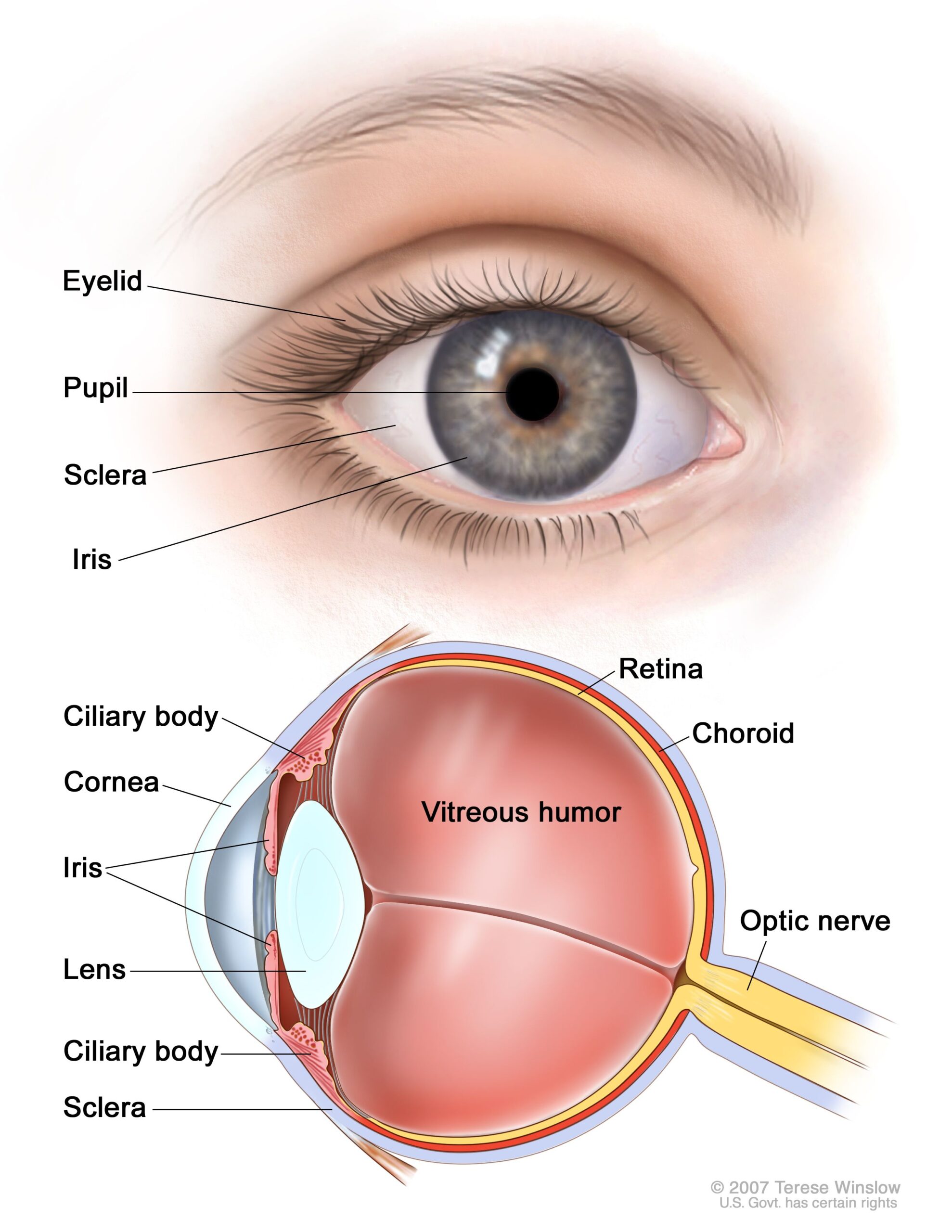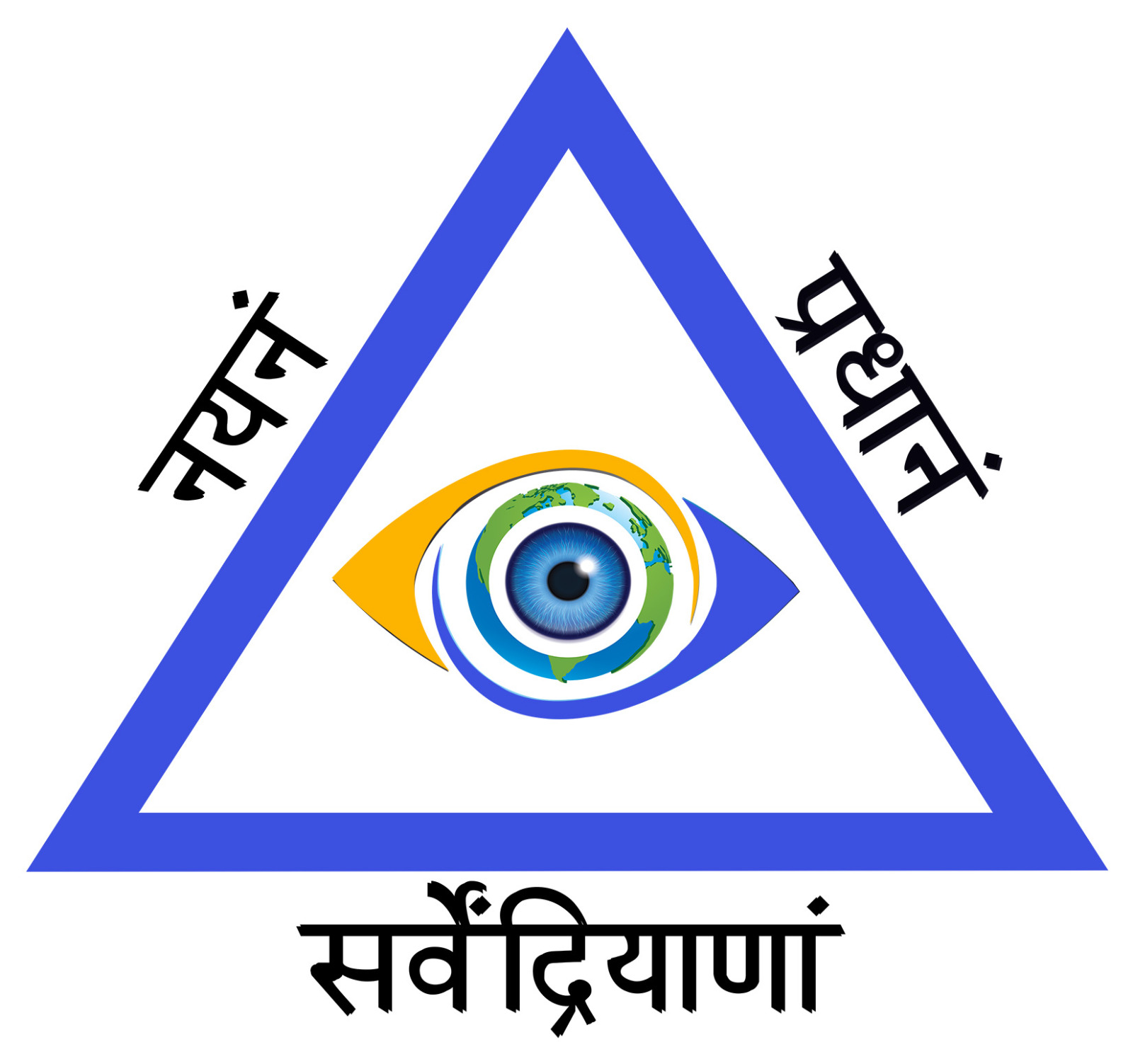Retina
What is Retina?
- Optic Nerve Head
- Macula and Fovea
- Peripheral Retina

What are the common retinal conditions?
- Diabetic Retinopathy : If one is diabetic, the vessel wall in small vessels in the eye are affected which leaks fluid out of blood vessels into layers of the retina. This causes swelling in the retina and small dot and blot hemorrhages in the layers of the retina that causes blur and distortion in vision. In some severe uncontrolled diabetic cases, new retinal vessels are formed that are very fragile and bleeds into the layers of the retina and inside the eye causing loss of vision. If left untreated, it can lead to permanent loss of vision.
- Posterior Vitreous Detachment(PVD):
There is a clear gel called vitreous in the center of the eye that nourishes the retina and supports maintaining the eyeball shape. When this gel shrinks it causes stress on the inner layers of the retina causing traction. This is called posterior vitreous detachment. It causes symptoms in the form of floaters as spider web-like/ black mass floating in the eye. It is usually not harmful and needs no treatment. But if the symptoms occur more frequently and are associated with flashes of light then need complete retinal examination after dilatation.
Retinal Tear and Detachment: When PVD mentioned above occurs with enough traction to pull retina, tear occurs in layers of retina causing diminution of vision especially if affected in centre part of retina called macula . In very severe cases , fluid seeps into the layers of retina and separates the layers of retina it is called retinal detachment.If treated early , function of retina cam be restored in most cases.
Epiretinal Membrane: It’s a cellophane-like or a delicate scar tissue developing on retina due to various conditions in retina . It looks like a crinkled thin membrane over retina more near macula which pulls it up, distorting rods and cones that carry vision signals. The objects appear blurred or crooked and this can be treated in selected cases with surgery by removing the membrane.
- Macular Hole: It is a hole or defect in center part of retina i.e the macula which is important for vision. It can be because of injury to eye/ traction in the vitreous and macula/ repeated macular edema(swelling). Some sensitive subjects can identify the hole in their visual field.
- Macular Degeneration: It is a condition of aged people but can be seen in middle-aged subjects as well. The is deposition of yellow material in layers of retina at macula that causes deterioration of its function. Causes blurred vision/ blind spot in center of visual field . There are two types- Wet and dry variety. Smoking is an important risk factor for development of age related macular degeneration.
- Retinitis Pigmentosa: It is an inherited degenerative disorder that affects the retinal outer layers and causes loss of night and colour vision. It is usually associated with some systemic conditions and various syndromes are affected with it and commonly associated with hearing loss.
- Retinal Vein Occlusion: The retina has one artery and one vein to carry blood to and from the eye. When the retinal vein is blocked either the main central vein/ the branch vein is affected.It causes diminution of vision or blurred vision. It can happen gradually over time or suddenly depending on the amount of damage. Those with high BP, diabetes and glaucoma are at high risk for developing vein occlusion.
- Retinopathy of Prematurity (ROP): It is an eye disease seen in premature newborn babies especially who has low birth weight, OR have/had ICU stay and given oxygen therapy. More at risk for ROP if there are associated health issues like anemia, breathing problems and sepsis.
- Central Serous Retinopathy: It is a condition that occurs due to fluid accumulation between retina and choroid. It causes distorted vision like the straight line can appear curved/ wavy, dull in colour, dark area in central vision. It usually affects one eye but both eyes can get affected. Males in their 3rd to 5th decade of life are affected more. Stress, steroids use, type A personality, hypertension, auto immune disorders and organ transplantation are important risk factors.
For More Details Contact Us
To Know more about the above conditions/ get checked if you are having any of above symptoms, your ophthalmologist will do a comprehensive eye examination and dilated retina examination to diagnose the conditions to treat them.
